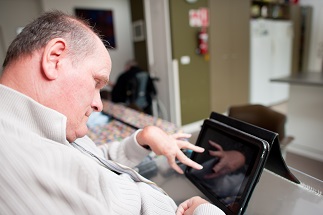National Institute for Health and Clinical Excellence (NICE)
|
|
NICE guideline set to address variation in provision of services for adults with cerebral palsy
NICE has published its guideline on the care and support needs of adults with cerebral palsy.

It aims to help local and regional services provide consistent clear pathways of clinical and social care and sets out what’s needed to tackle the variation that exists in the provision of specific services for adults with cerebral palsy.
Paul Chrisp, director of the Centre for Guidelines at NICE, yesterday said:
“Adults with cerebral palsy have a wide range of disabilities – from full independence to needing 24-hour care and attention. But whatever their level of disability, adults with cerebral palsy should be able to be as independent as possible. Many may wish to go into further education, get a job, take part in leisure activities and contribute fully to society. Barriers to these goals should be minimised so that adults with cerebral palsy have equal access to every available opportunity.
“This guideline will help to ensure that adults with cerebral palsy have easy access to equitable, cost-efficient services, with a clear network of referral to more specialised services as appropriate.”
The guideline recommends, among other things, that:
- Commissioners and service providers should develop pathways that allow adults with cerebral palsy access to a local network of care (for example learning disability and mental health services, rehabilitation medicine or specialist neurology services, specialist physiotherapy and occupational therapy services, wheelchair services).
- Factors that prevent adults with cerebral palsy accessing primary or secondary care services, or participating in activities (for example, physical barriers, including access to buildings, and personal barriers such as carers with unmet training needs) should be identified and addressed.
- Regular reviews for adults with cerebral palsy, tailored to their needs and preferences should be considered. The frequency of review and which services should be involved should be agreed with the person, based on their needs and preferences.
- Adults with cerebral palsy who would like to like to live independently should be referred to a professional with expertise in independent living for advice on, among other things, what adaptions to their home need to be considered.
Cerebral palsy is the name for a group of lifelong conditions that affect movement and co-ordination. Caused by a problem with the brain that occurs around birth, cerebral palsy is the most common cause of physical disability in children and young people in the developed world.
Improved treatments have brought increasing life expectancy, including more children with severe and complex cerebral palsy now more likely to live beyond childhood. There are now more adults in the UK living with cerebral palsy than the estimated 30,000 children.
Adults with cerebral palsy can lose mobility because of factors such as changes in their muscle tone, weakness and pain. These, as well as other symptoms associated with cerebral palsy such as pain, communication difficulties and nutritional problems, are also a high priority for management and are therefore covered in the guideline, as are mental health problems that may arise as a consequence of cerebral palsy.
Paul Chrisp added:
“In 2017 NICE published a guideline on cerebral palsy in children and young people aged under 25 to help improve the diagnosis and management of cerebral palsy and reduce variation in clinical practice across the country. With the increasing life expectancy for children with cerebral palsy there is a clear need to improve the provision of services to allow a more joined-up transition from children’s to adult services – this guideline will help with that process.”
Original article link: https://www.nice.org.uk/news/article/nice-guideline-set-to-address-variation-in-provision-of-services-for-adults-with-cerebral-palsy-2


